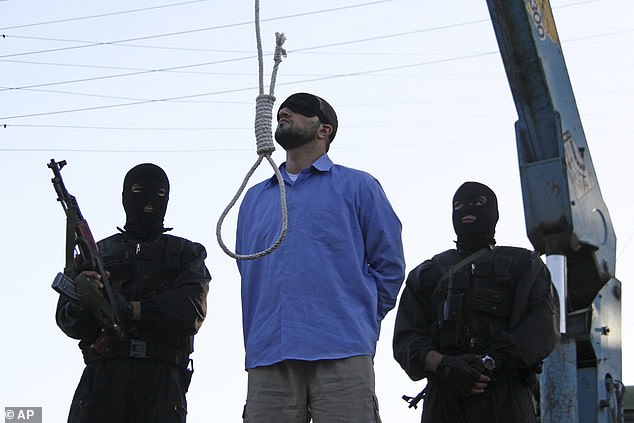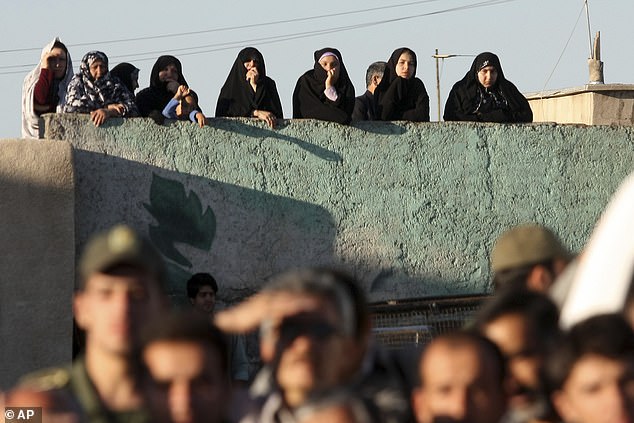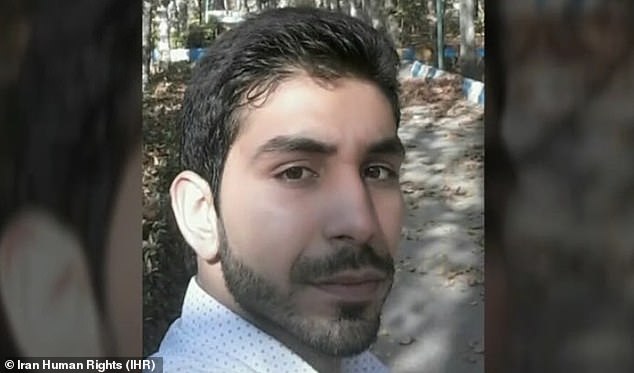An Iranian was hanged for a second time by hardline authorities months after his first execution was stopped half a minute later, according to a human rights group.
Ahmad Alizadeh was arrested in October 2018 on a murder charge, which he denied, and was sentenced to death, said Norway-based Iran Human Rights (IHR), which tracks executions in Iran.
The 26-year-old’s death sentence was originally scheduled for April 27 at Ghezel Hesar prison in Karaj, outside Tehran.
But just 28 seconds after being hanged, he was taken down from the gallows when the victim’s family suddenly shouted “sorry.”
CPR was performed on his “lifeless” body and he was successfully resuscitated, canceling the first execution, IHR said.
Ahmad Alizadeh was arrested in October 2018 on a murder charge, which he denied, and sentenced to death.

A blindfolded man convicted of armed robbery, kidnapping and murder of two police officers waits to be hanged in public in Tehran, Iran, April 16, 2011.
Under Iran’s sharia law, a victim’s family can ask for blood money to spare the perpetrator’s life or also decide to forgive.
However, in many cases the condemned man’s family cannot afford the fixed sum and the execution continues, according to activists.
Alizadeh remained under threat of the death penalty in the absence of an agreement with the victim’s family to obtain blood money.
He was executed again at Ghezel Hesar prison on Wednesday morning, IHR said. Executions usually take place in groups on the same day every week in the famous jail.
“Ahmad Alizadeh, a talented student, was hanged for the second time on charges of murder, which he denied and claimed to have confessed under torture,” said IHR director Mahmood Amiry-Moghaddam, denouncing the “execution machine of the Iranian regime.”
The head of the NGO had previously said: “In addition to the inhumanity of the death penalty and the lack of a fair trial in this case, Ahmad Alizadeh experienced this cruel and humiliating punishment once, and his re-execution is a crime by all accounts.” international standards”. standards.”
According to the IHR, a new surge in executions will occur in 2024: at least 166 executions were recorded in October alone, the highest number recorded in a single month since the group began documenting executions in 2007.
Hanging is the most common method of execution in Iran and has been the preferred approach since the late 1980s.

Under Iran’s sharia law, a victim’s family can ask for blood money to spare the perpetrator’s life or also decide to forgive. In the image: Locals watch the hanging take place.
Heartbreaking images and videos have shown how some of those sentenced to death are hung from cranes, meaning that their death will be slow and painful as they are lifted with a rope and strangled.
Crowds are encouraged to watch the killings take place, with multiple executions often carried out at once and the gruesome scenes even televised.
When hangings are carried out with a step, the victims’ families have the right to kick the chair under the hanging criminal.
And according to the Iranian Penal Code, hanging can also be combined with other forms of punishment, such as flogging, amputation or crucifixion.
Activists accuse Iran of using the death penalty as a means to instill fear throughout society, particularly in the wake of the 2022-2023 nationwide protests that shook Islamic authorities.
Activists such as Amnesty International say Iran carries out more executions annually than any country except China, for which no reliable figures are available.
For years, Iran has been among the worst perpetrators of state-sanctioned killings, along with countries like China, Saudi Arabia and Egypt.
But the Iranian regime has earned a reputation for its indiscriminate executions and is now killing more citizens per capita than any other country.
Iran executed a “staggering” total of at least 834 people last year, the highest number since 2015, when capital punishment increased in the Islamic Republic, two human rights groups revealed this week.
The number of executions increased by around 43 percent from 2022, and marked only the second time in two decades that more than 800 executions were recorded in a year, Norway-based Iran Human Rights (IHR) and Together said. Against Death, based in Paris. Penalty said in a joint report.

